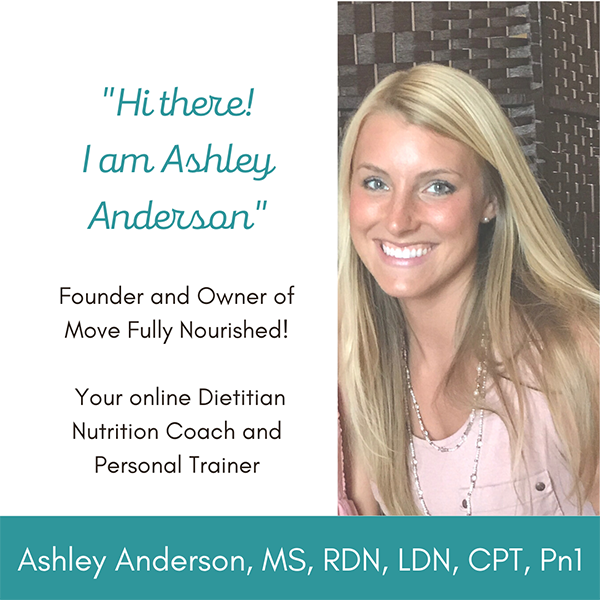There are a variety of specific diets that we use to help our clients reduce inflammation in conjunction with the medical nutritional therapy approach to promote healing. It varies case by case but what all these types of diets have in common is an elimination process. Elimination of certain foods or food groups, changes in how to eat, social gatherings, impacting ordering food outside of the home, and adjusting to a new normal. Changing diet and lifestyle to make health the NUMBER ONE priority comes with more than a few emotions to process.
So let’s discuss the grieving process. This process might be not only about your experience with your diagnosis. It could be associated with the NEW steps required to heal. The 5 stages of grief are denial, anger, bargaining (or fear), depression (or sadness), and acceptance (or as I like to call it—embracement).
You might have challenges around social adjustments. Also, sometimes in the same way that relationships can be strained by chronic illness, they can be strained by such an intensive healing protocol. Some might find there is a struggle around letting go of certain foods, while others experience the intense fear of not following the diet changes perfectly. It’s important to note that if you think your patterns of eating are becoming disordered, it’s important to get the right kind of help. This way, you can go through the healing process as it is intended, and not allow it to become another stressor or burden on your emotional load.
The good news is that you are NOT alone. I myself have been through this process on my health journey with IBS and Hashimoto’s, and have helped hundreds of clients do the same. I am here as living proof that I am now happier, stronger, healthier, and more confident than I ever was knowing how to fuel my body best and what helps me feel amazing.
STAGES OF GRIEF
1. Denial to Avoid Feelings
Denial is often seen with health conditions and a new diagnosis. I’ve worked with many people who tell me about the symptoms they experience and that they are just “normal” that has always been that way for them. For example, an individual may always have chronic diarrhea and it is just “normal” for them or another thing I often hear is “I have always had a sensitive stomach, as long as I can remember, even as a kid.”
Likewise, some people come to us, and they were diagnosed with an autoimmune condition years ago and just tried to ignore their diagnosis—until complications arise. This is where we the dietitians come in to help! Oftentimes, it is so so hard to accept that our bodies are not functioning the way they should or the way they used to. However, we cannot begin to heal our bodies or feel better until we acknowledge that something is wrong and our “normal” is not actually “normal”.
2. Anger to Displace Feelings
Dealing with illness or irregularities in our bodies can make us upset or angry and we have honestly, we have every right to be angry. I often hear people say “why me? What have I done to deserve this? How could my parents have not addressed this when I was a child? I have terrible genes! My body has failed me! I am just so frustrated!“
It IS important to release the anger or frustration that you feel and not stuff it deep down —only to explode on someone or something as the frustration builds!
With our 1:1 clients, we want to know what is going on, and how they are feeling. However, we want to be constructive with how we want our clients to express their feelings. Maybe it’s through artwork or poetry, writing down thoughts in a journal, or using movement as a form of therapy. We also feel it’s important to look at the big picture and help our clients begin to take ownership of their situation knowing that we are here for support. This is when we start to look at new information, a diagnosis, or lab findings as observations and opportunities to discuss potential solutions to get to the root.
3. Bargaining to Control Feelings or to Avoid Change
As we move through this stage, there is the potential to pick up some negative behaviors to cope with a diagnosis. On one end of the spectrum, you may decide that because you have one food allergy, cutting out 5 other foods might somehow make your body tolerate the allergen better.
Or you may believe that a detox juice cleanse will cure your disease or ailment. Or maybe you decide that working out for a few hours each day might help reverse your diagnosis. OR you find a supplement online and decide it’s going to save you! These ultimatums or “bargains” to gain a sense of control don’t help you reach a long-term solution.
It is important to be curious and explore to find your solution but remember that a lot of those things are fluff and getting to the root of your ailments or addressing a diagnosis comes with time, long-term habit changes, and finding peace within your situation and with yourself.
4. Depression to Bury Feelings and Sadness
Depression and sadness, just like the feeling of anger, are very valid feelings to have when dealing with unwanted symptoms or a medical diagnosis. It’s important to not go down the rabbit hole and allow slippery slope thoughts to take you in the direction of doom and glum.
Expressing your sadness by talking to a therapist, friend, family member, dietitian, doctor, or other health professional is one great method to get your emotions off your chest and out of your head. It’s okay to cry. It’s also helpful to use some of the same methods discussed in anger—use artwork to express your feelings, journal your thoughts, move your body in a way that feels good, get some fresh air and sunlight on your face, or dream about adventures you want to go on.
Now, let me also say that it’s not dumb or silly to cry over the fact that you “can’t” or are choosing not to eat such as peanuts, eggs, gluten, or milk. Or maybe you need to be very conscious of the foods you consume or you need to start taking medications to control your blood sugar. This is a huge change, and you are allowed to mope if that’s what you need during this stage.
However, if it persists long-term then you need to seek out professional help.
5. Acceptance When we Face our Feelings and Embrace the Lifestyle changes
It may take you a very long time to arrive at acceptance and embrace the adjustments you have had to make. Also, just because you accept your condition one day, doesn’t mean you’re going to accept it the next. It could take years, and that is okay. As long as you take steps towards getting there, you are succeeding. When we accept the loss of our purest healthy selves, we are finally able to move on. We are able to care for ourselves in the ways that we need to in order to live full, meaningful lives.
REMEMBER THIS “Action beats intention every time” and “Every little bit counts towards a healthier you!”
A few things to keep in mind during this process:
- Avoid perfectionism
- Set boundaries for yourself and others
- Resist comparison to others
- Find encouraging support and
- Practice daily gratitude
You will get to acceptance and the ability to embrace your new life, you just have to believe it is possible, have the right tools to help you see the big picture, and to take ownership of your situation. At MOVE FULLY NOURISHED, we help create clarity in the chaos for our clients, support each person along their journey, and are here to tell you that it IS possible.
We take the words and feelings that make it seem IMPOSSIBLE and help our clients see that word from a new perspective: I’M POSSIBLE.
Check out this video for more information!
Your Online Dietitian Coach, Ashley Anderson MS, RDN, LDN, CPT, PN1

Your Online Dietitian Coach, Rachel Brown, RD, IBCLC, CDECS, MBA

***Click I’M READY to fill out our coaching application to schedule a complimentary discovery call TODAY! A healthier you is just a call away!***
Resources:
- Wellness A. What is AIP? The Definitive Guide. Autoimmune Wellness. Published June 4, 2018. https://autoimmunewellness.com/what-is-aip-the-definitive-guide/
- The 5 Stages of Grieving The Loss of Your Healthy Self When Not All Foods Fit. Christina Frangione Nutrition Therapy. Published February 6, 2017. https://christinafrangione.com/2017/02/06/grieving-loss-of-self/




